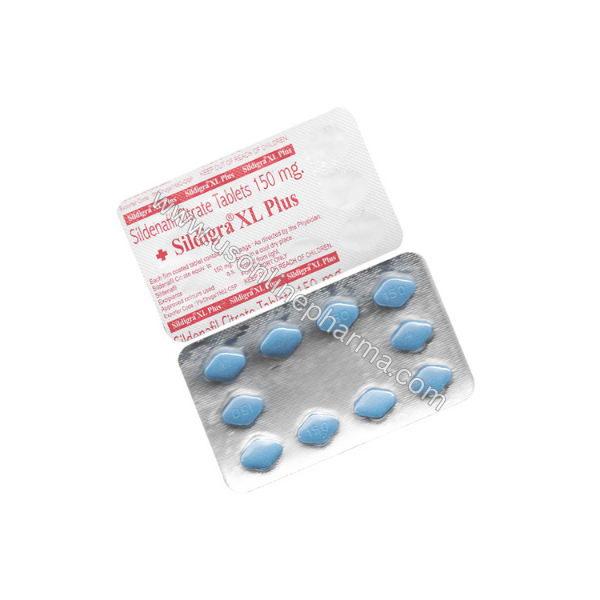Common Causes of Performance Anxiety
Performance anxiety can stem from a variety of sources, leading to feelings of pressure and stress in intimate situations. One common cause is the fear of not meeting expectations, whether they are self-imposed or perceived from a partner. This fear can create a cycle of worry and doubt, impacting confidence and performance negatively. Additionally, past negative experiences or traumas related to intimacy can contribute to the development of performance anxiety, triggering feelings of insecurity and vulnerability.
Another significant cause of performance anxiety is the pressure to perform perfectly, driven by societal expectations and norms. The desire to meet ideals of sexual prowess and stamina can create undue stress and anxiety, leading to difficulties in maintaining arousal and satisfaction. Moreover, lack of communication with a partner about desires, boundaries, and concerns can exacerbate performance anxiety by fostering uncertainty and misinterpretation.
Understanding the Relationship Between Performance Anxiety and Erectile Dysfunction
Erectile dysfunction (ED) and performance anxiety are two intimately connected issues that can significantly impact a person’s sexual well-being. When individuals experience performance anxiety, the fear of not being able to perform adequately in intimate situations can lead to feelings of inadequacy, fear of failure, and self-doubt. These negative emotions can create a cycle of anxiety that further hampers sexual performance, potentially resulting in erectile dysfunction.
It is essential to recognize that the link between performance anxiety and erectile dysfunction is not solely physical but also psychological. The pressure to perform well in sexual encounters can trigger stress responses in the body, leading to a release of adrenaline and other hormones that can inhibit the natural physiological processes necessary for achieving and maintaining an erection. This psychological interference with the body’s natural response mechanisms can exacerbate erectile dysfunction and perpetuate the cycle of anxiety and sexual performance issues.
Signs and Symptoms of Performance Anxiety
## Introduction ##
Performance anxiety is a common concern that can affect individuals in various aspects of life, including intimate situations. Recognizing the signs and symptoms of performance anxiety is crucial in addressing and managing this issue effectively. Understanding how performance anxiety manifests can help individuals seek appropriate support and strategies to overcome its impact.
Performance anxiety may present itself through a range of physical, emotional, and behavioral indicators. Individuals experiencing performance anxiety may notice an increase in heart rate, sweating, trembling, or gastrointestinal discomfort before or during a challenging situation. Emotionally, feelings of fear, worry, self-doubt, or a sense of impending failure can be prevalent. Behaviorally, avoidance of certain activities, difficulty concentrating, or changes in sleep and eating patterns may also be observed. It is essential to pay attention to these signs to address performance anxiety in a timely manner.
The Role of Stress in Performance Anxiety and Erectile Dysfunction
Stress plays a pivotal role in exacerbating both performance anxiety and erectile dysfunction, creating a vicious cycle that can significantly impact an individual’s intimate relationships and overall well-being. When stress levels are heightened, the body releases cortisol, the primary stress hormone, which can constrict blood vessels and hinder the ability to achieve and maintain an erection. Additionally, stress can trigger negative thought patterns and self-doubt, further amplifying performance anxiety during intimate encounters. As such, understanding the interconnected nature of stress, performance anxiety, and erectile dysfunction is crucial in developing effective coping strategies and interventions to address these challenges.
Furthermore, chronic stress can disrupt hormonal balance, affecting testosterone levels and leading to decreased libido and sexual performance. The constant activation of the body’s stress response system can also contribute to physical symptoms such as muscle tension, rapid heartbeat, and sweating, all of which can intensify feelings of anxiety and contribute to difficulties in achieving sexual arousal. By acknowledging the impact of stress on both psychological and physiological aspects of sexual performance, individuals can proactively work towards stress management techniques to alleviate performance anxiety and improve their intimate experiences.
• Chronic stress disrupts hormonal balance, affecting testosterone levels and leading to decreased libido
• Stress triggers negative thought patterns and self-doubt, amplifying performance anxiety during intimate encounters
• Constant activation of the body’s stress response system can contribute to physical symptoms such as muscle tension, rapid heartbeat, and sweating
• Understanding the interconnected nature of stress, performance anxiety, and erectile dysfunction is crucial in developing effective coping strategies
and interventions
• Proactively working towards stress management techniques can alleviate performance anxiety and improve intimate experiences.
Effective Relaxation Techniques for Managing Performance Anxiety
Navigating performance anxiety can be challenging, but incorporating relaxation techniques into your routine can be a game-changer. One effective method is deep breathing exercises. By inhaling deeply through your nose and exhaling slowly through your mouth, you can signal to your body that it’s time to relax. This simple yet powerful technique can help calm your nerves and reduce the physical symptoms of anxiety, allowing you to focus on the moment.
Progressive muscle relaxation is another helpful strategy for managing performance anxiety. This technique involves tensing and then relaxing different muscle groups in your body, one by one. By deliberately releasing tension in your muscles, you can alleviate stress and create a sense of overall relaxation. This method is not only beneficial for reducing anxiety but can also improve your body awareness and promote a sense of control over your physical response to stressful situations.
Strategies for Boosting Confidence in Intimate Situations
Boosting confidence in intimate situations can be a game-changer when it comes to overcoming performance anxiety and improving overall sexual well-being. One effective strategy is to focus on positive self-talk. Instead of fixating on potential insecurities or past experiences, consciously shift your inner dialogue to affirmations that highlight your strengths and desirability. By reminding yourself of your value and appeal, you can cultivate a mindset that promotes self-assurance and comfort in intimate settings.
Another key tactic is to practice mindfulness and be present in the moment. This involves letting go of distractions or concerns about the future and immersing yourself fully in the sensory experience of the present encounter. By tuning into your senses and connecting with your partner on a deeper level, you can enhance intimacy, reduce performance pressure, and foster a more authentic and fulfilling connection.
The Impact of Communication on Performance Anxiety and Erectile Dysfunction
Communication plays a pivotal role in how individuals navigate performance anxiety and its link to erectile dysfunction. The ability to openly discuss fears, concerns, and expectations with a partner can significantly impact how one experiences intimate situations. By fostering effective communication, individuals can address underlying issues, set realistic goals, and establish a supportive environment conducive to overcoming performance anxiety and enhancing overall sexual well-being.
When partners engage in open and honest conversations about their thoughts and feelings surrounding intimacy, they create a space for understanding and empathy. This mutual understanding can alleviate pressure, reduce misunderstandings, and promote a sense of connection and intimacy. By communicating openly, individuals can cultivate trust, strengthen emotional bonds, and work together to address and resolve any issues contributing to performance anxiety and erectile dysfunction, ultimately improving sexual satisfaction and relationship dynamics.
Healthy Lifestyle Habits to Improve Sexual Performance
Living a healthy lifestyle is crucial for improving sexual performance. Regular exercise not only benefits your physical health but also enhances circulation, stamina, and overall energy levels. Engaging in activities like jogging, swimming, or yoga can boost your confidence and help you feel more in tune with your body. Additionally, maintaining a balanced diet rich in fruits, vegetables, lean proteins, and whole grains can provide essential nutrients that support sexual function and vitality.
Adequate rest and sleep are essential for optimal sexual performance. Lack of sleep can lead to fatigue, irritability, and decreased libido, affecting your ability to perform in intimate situations. Aim for seven to nine hours of quality sleep each night to ensure that your body is adequately rested and rejuvenated. Moreover, managing stress through relaxation techniques such as meditation, deep breathing exercises, or mindfulness can help alleviate anxiety and promote a healthy mindset for improved sexual experiences.
Professional Help: Therapy and Counseling for Performance Anxiety and Erectile Dysfunction
When it comes to overcoming performance anxiety and erectile dysfunction, seeking professional help through therapy and counseling can be incredibly beneficial. Therapists and counselors are equipped with the expertise to guide individuals through the emotional and psychological aspects that contribute to these conditions. Through tailored strategies and techniques, they can help individuals address underlying issues, develop coping mechanisms, and build confidence in intimate situations.
Therapy and counseling provide a safe and non-judgmental space for individuals to explore their feelings, fears, and insecurities related to performance anxiety and erectile dysfunction. By delving into the root causes of these issues, individuals can gain clarity and understanding, leading to effective solutions and improved overall well-being. Therapists and counselors offer personalized support and guidance, empowering individuals to navigate challenges and work towards achieving healthier and more fulfilling intimate relationships.
Building a Support System for Coping with Performance Anxiety
Having a strong support system is crucial in coping with performance anxiety. Surrounding yourself with understanding and encouraging individuals can make a significant difference in managing the stress and pressure that come with performance-related situations. Whether it’s through talking to a trusted friend, seeking advice from a therapist, or joining a support group, having a network of people who have your back can boost your confidence and provide a sense of reassurance.
Support systems can offer a safe space for you to express your concerns and fears without judgment. By sharing your experiences and emotions with others, you may realize that you are not alone in feeling anxious about performance situations. Additionally, receiving validation and empathy from your support network can help alleviate feelings of isolation and self-doubt, ultimately empowering you to confront and overcome performance anxiety more effectively.
What are some common causes of performance anxiety?
Common causes of performance anxiety can include fear of failure, fear of judgment or criticism, past negative experiences, pressure to perform, lack of confidence, and high expectations.
How is performance anxiety related to erectile dysfunction?
Performance anxiety can contribute to erectile dysfunction by causing feelings of stress, worry, and self-doubt that can interfere with sexual arousal and performance.
What are some signs and symptoms of performance anxiety?
Signs and symptoms of performance anxiety can include rapid heartbeat, sweating, trembling, shortness of breath, difficulty concentrating, negative self-talk, and avoidance behaviors.
How does stress play a role in performance anxiety and erectile dysfunction?
Stress can exacerbate performance anxiety and erectile dysfunction by triggering the body’s fight or flight response, increasing muscle tension, and disrupting normal physiological processes necessary for sexual arousal and performance.
What are some effective relaxation techniques for managing performance anxiety?
Effective relaxation techniques for managing performance anxiety can include deep breathing exercises, progressive muscle relaxation, visualization, mindfulness meditation, and guided imagery.
How can communication impact performance anxiety and erectile dysfunction?
Open and honest communication with a partner can help alleviate performance anxiety by reducing feelings of isolation and increasing feelings of support, understanding, and acceptance.
What are some healthy lifestyle habits that can improve sexual performance?
Healthy lifestyle habits that can improve sexual performance include regular exercise, balanced diet, adequate sleep, stress management, and avoiding substances like alcohol, tobacco, and drugs.
How can therapy and counseling help with performance anxiety and erectile dysfunction?
Therapy and counseling can provide individuals with coping strategies, relaxation techniques, cognitive-behavioral interventions, and tools to address underlying psychological issues that contribute to performance anxiety and erectile dysfunction.
How can one build a support system for coping with performance anxiety?
Building a support system for coping with performance anxiety can involve reaching out to trusted friends, family members, support groups, therapists, or mental health professionals for guidance, encouragement, and emotional support.














